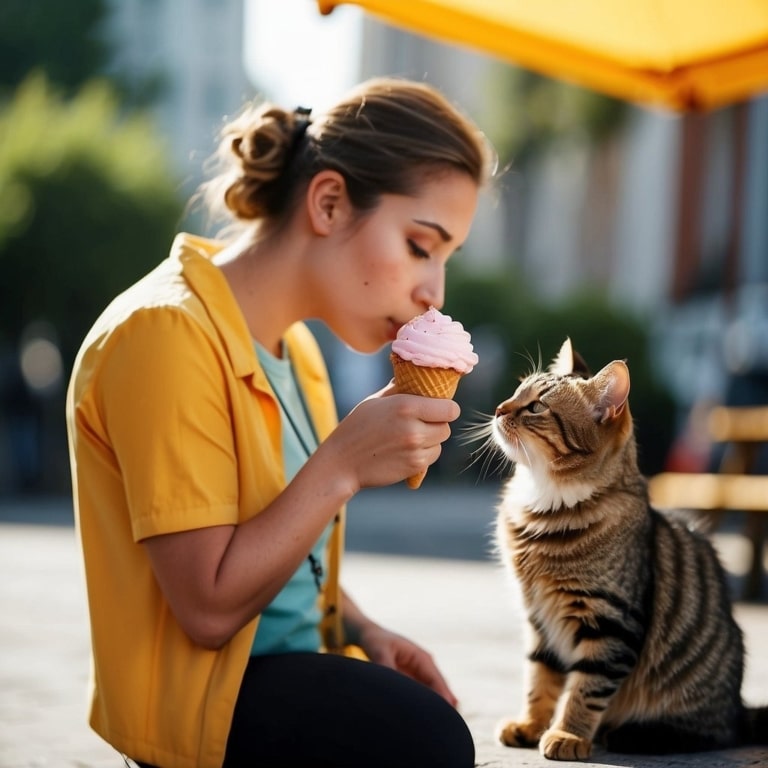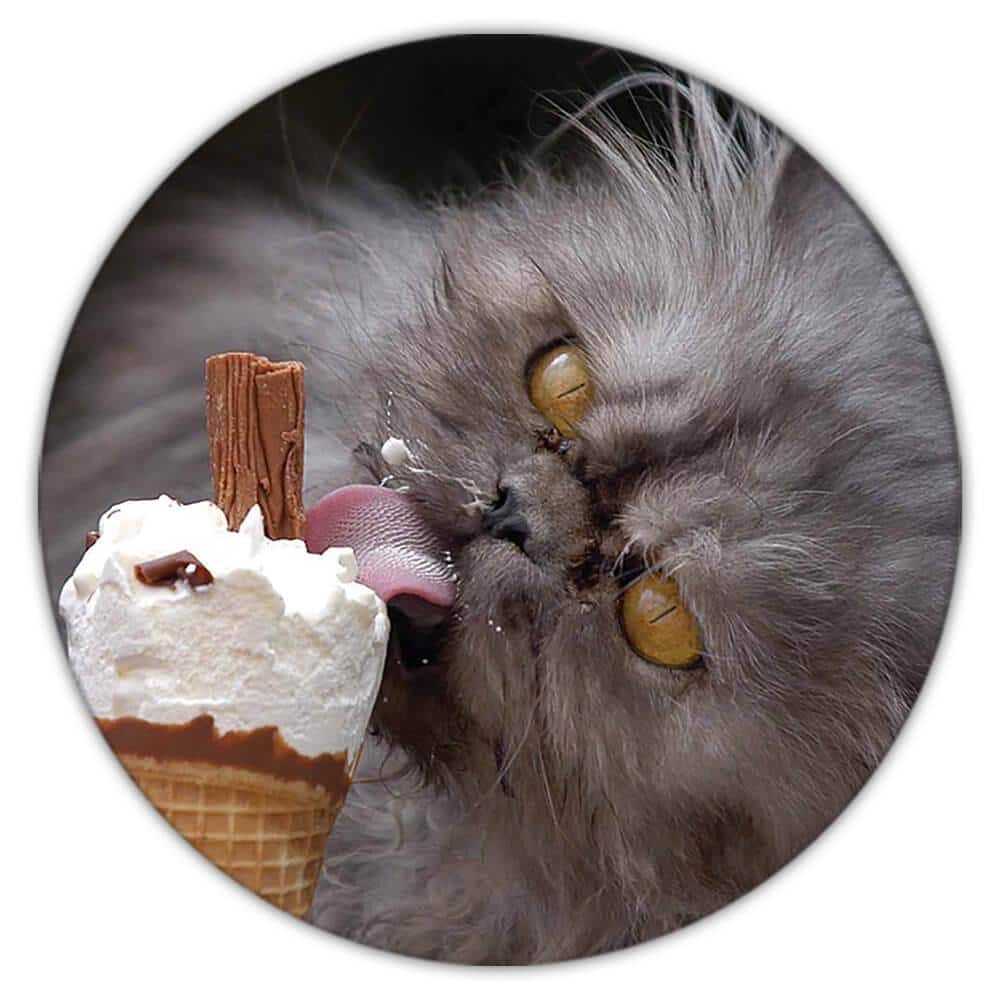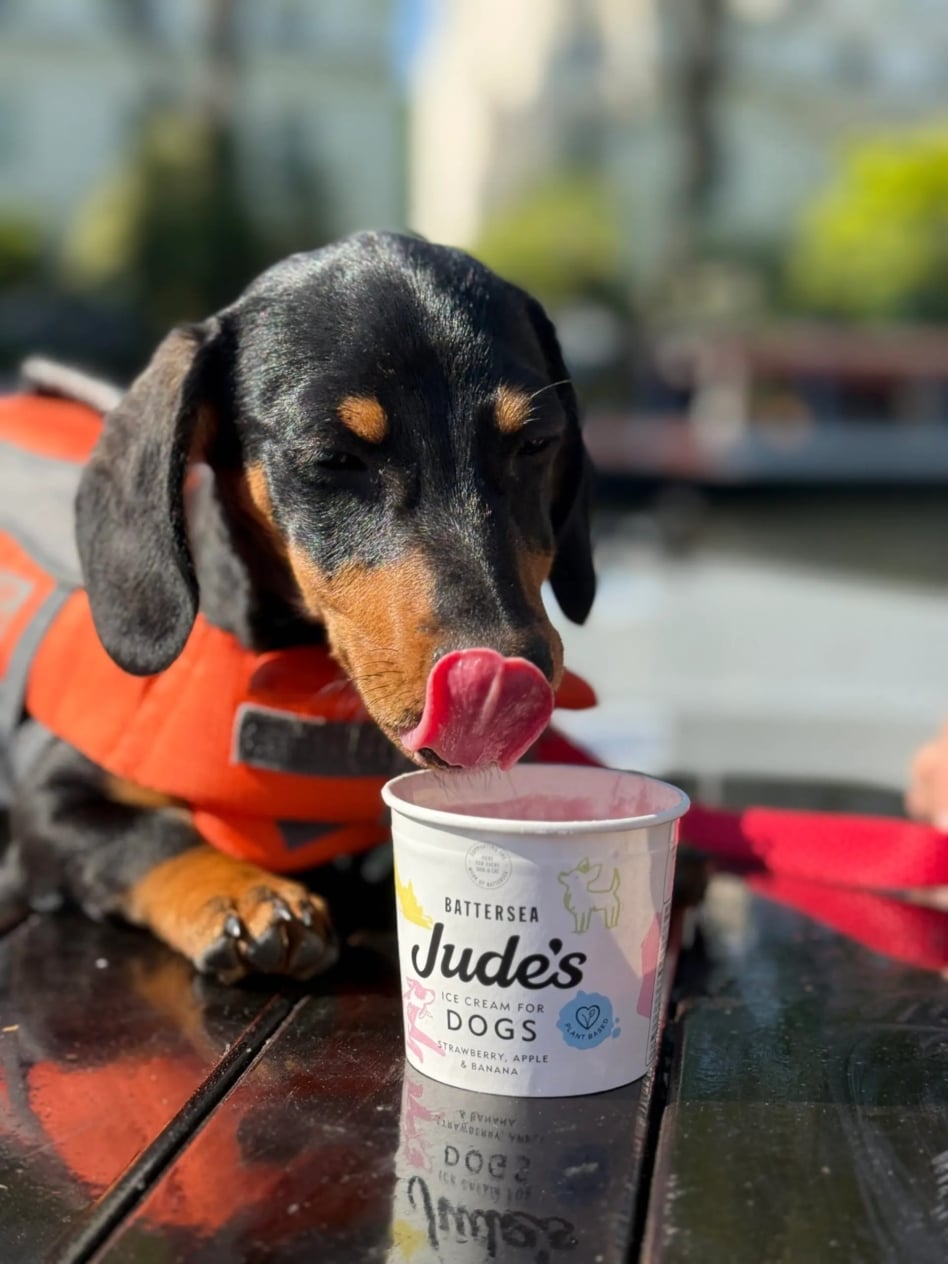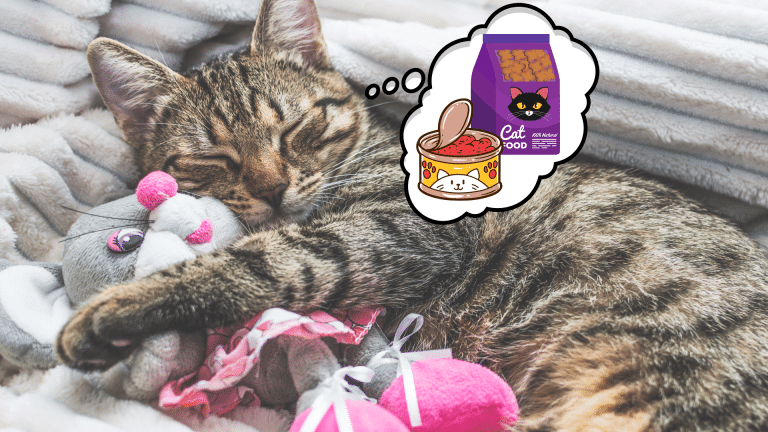
On hot days, owners often wonder how to help their pets cool down. The idea of treating a dog or cat to ice cream seems appealing – after all, it’s how we escape the heat. But is it safe for animals? Can ice cream be a treat for them, or can it cause harm?
Can ice cream be given to dogs and cats?
Ordinary ice cream eaten by humans is not suitable for animals at all. It contains a lot of sugar as well as the milk sugar lactose. Most adult dogs and cats lack the enzyme that breaks down lactose, so they can experience bloating, gas, diarrhea, and even stomach pain after eating ice cream. In addition, store-bought ice cream often contains chocolate, nuts, flavorings and preservatives that are toxic or harmful to pets.
Another danger is the temperature of the product. A treat that is too cold can cause throat irritation, inflammation or even hypothermia, especially in small breeds. Therefore, ice cream from our refrigerator is by no means a healthy food for a cat or dog, even on the hottest days.
Special ice cream for animals: are there any benefits?
Due to the owners’ love to pamper their pets, special ice cream for animals has appeared. It is made without sugar, artificial additives and harmful ingredients. The base can be lactose-free natural yogurt, meat or chicken broth, mashed pumpkin or banana, sometimes even ground dry food.
Such ice cream is not only cooling in the heat, but can also be a tasty source of protein or vitamins. It is easily digestible and creates a “surprise toy” effect: the dog or cat licks the frozen product for a long time, which both cools and entertains the animal.
But even specialized ice cream should not be an everyday treat. It’s more of a summer treat that can be given a few times a week in small portions to avoid digestive problems.
Ice cream alternatives for refrigeration and safe options
If you can’t afford to buy specialty ice cream, you can make safe alternatives at home. Frozen apple, banana or watermelon slices (seedless) are fine for dogs. Some owners make “ice cubes” from chicken broth or unsweetened lactose-free yogurt. For cats, a good alternative is frozen meat broth or a small amount of wet food that has been pre-chilled in the refrigerator.
You should also take care of simple but effective cooling methods: fresh cool water in a bowl, shade in the yard or on the balcony, cooling mats or toys from the freezer. It’s safer and more practical than feeding your pet foods not meant for him.

Conclusion
Ice cream in its classic form is not suitable for animals. However, special ice cream for dogs and cats, made without sugar and harmful additives, can be a pleasant summer fun. The most important thing is to observe the measure and not to make ice cream the main food. Better yet, offer alternatives: frozen fruit, broth cubes or chilled food. This way you will give your pet a tasty surprise and take care of his health on hot days.












